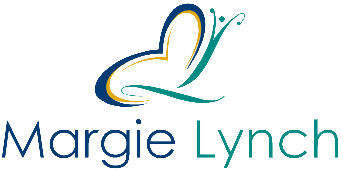This week, we’ll be covering the next four exercises to help you boost happiness: practice acts of kindness, commit to your goals, learn to forgive, and engage in flow. Review part 1 here!
Practice Acts of Kindness
What is it? A spontaneous gesture of goodwill toward someone or something.
Research shows altruistic people tend to be happier and altruism and volunteering tend to benefit the giver even more than the receiver. Performing acts of kindness increases people’s happiness level and the more acts that are performed in one day, the higher the happiness.
Practicing kindness helps people shift into a self-perception of, “I do good in the world,” and strengthens social ties. When people are stuck in a negative state, they are often self-centered in their thinking and feeling. Performing a kind act gets people into an “other-centered” way of being, which can increase their mood and put them into an upward spiral of positive emotion.
Potential habits to develop:
Think of a person who can benefit from your help. Maybe they can use your support, your time, or your experience. This can be a family member, a colleague or someone who can simply benefit from your smile and a simple, “hello.” It may be someone who would benefit from your recognition of a job well done. When you go through your day, be aware of the people around you and think of what you can offer them to make a difference in their day.
Write what you have done in your journal to savor the feeling of happiness.
Commit to Your Goals
What is it? Picking one, two, or three significant goals that are meaningful to you and devoting time and effort towards pursuing them.
It’s essential that people connect to the ‘why’ of their goals and connect to the intrinsic motivation of their achievement. Research shows setting and accomplishing goals will increase one’s sense of satisfaction and productivity. People who set high goals tend to be more satisfied with their work.
A potential habit to develop:
Develop a habit of tracking your SMART goals. Did you create any New Year’s resolutions? How are you doing on them? Did you know that 80% of people give up on their resolutions by the second week of February? Why? Because they fail to track their goals. You need some immediate feedback to feel a sense of accomplishment and motivation to keep going. Will you make tracking a habit?
Learn to Forgive
What is it? Forgiving those who have done wrong: giving people a second chance, not being vengeful.
Forgiving is not the same thing as forgetting. Forgiving is a gift you give yourself for not letting the situation continue to plague you.
Research shows that holding on to grudges takes away from your health. Forgiving people are less likely to be hateful, depressed, hostile, anxious, and neurotic and are more likely to be happier, healthier, more agreeable, and more serene.
By learning to forgive, it helps to let go of trying to change the past and decreases negative rumination about the event. It helps people let go of feelings of resentment, regret, and revenge. It will move people out of a narrow and focused state into a broaden and build state.
Exercises to cultivate forgiveness:
Appreciate being forgiven. Think about a time when you were forgiven by someone. What insights do you have? Another way to appreciate being forgiven is to seek forgiveness of yourself.
Imagine forgiveness. First, identify a particular person who you blame for mistreating or offending you. Then, engage in a visualization exercise, where you imagine empathizing with the offender and granting forgiveness. Trying to feel empathy involves viewing the situation through the offender’s eyes and ears, seeing him or her as a whole person rather than defining them solely by the offending behavior.
Engage in Flow
What is it? A state of intense absorption: In the zone. Feeling of energized focus, full involvement, and enjoyment in the process of the activity in the moment. The key to flow moments is having the appropriate balance of challenge and skills.
Research shows that frequent amount of flow activities correlates with life satisfaction, achievement, better health, and creativity. Engaging in flow focuses your energy and attention, creates self-regulation, engages you in the creation process, and gets you stepping out of your “stuff” into an altered state, even if it’s for just a short period of time.
Here are some things you can do to create more flow in your daily life:
- Be open to new and different experiences, and continue learning all the time. Think like a young child.
- Establish precise time periods and activities during which you find yourself in flow and then multiply them.
- During your next 1:1 with someone, focus your attention as intensely as possible on what the other person is saying. Be curious.
These are some activities that put me in a state of flow:
- Reading about topics I’m interested in – Positive Psychology is a BIG one!
- Writing these newsletters
- Adult coloring
- Walking the dogs
What are your flow activities? Will you multiply them this week?
Keep going, keep growing…
Related posts:
Invite More Positive Emotion into Your Life

